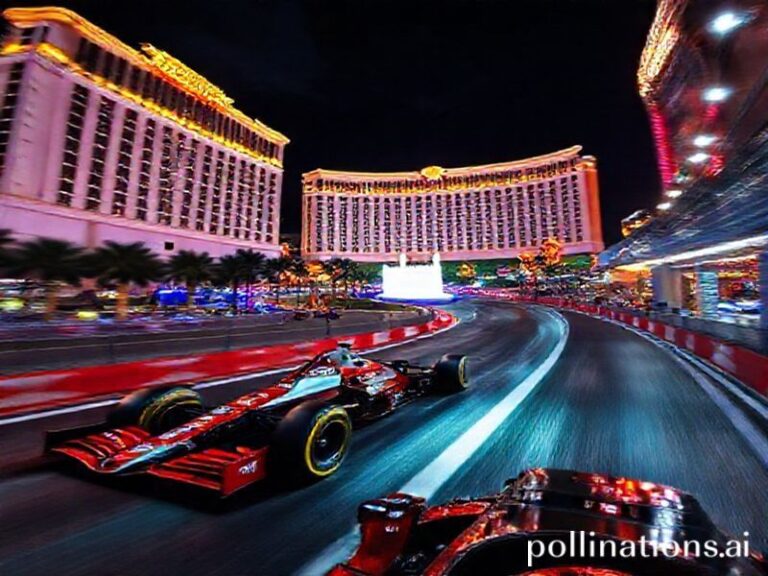Solana: The High-Speed Blockchain Where the World Gambles Its Future While the Power Grid Pretends to Nap
Solana: The Blockchain That Promised to Cure Everything Except Human Greed
By Our Correspondent Who Has Watched Empires Burn Faster Than a Stablecoin Peg
ZURICH—While the rest of us were busy panic-buying toilet paper and existential dread in 2020, a small band of San Diego coders quietly christened a new blockchain they claimed could process 65,000 transactions per second—roughly the speed at which humanity loses faith in its institutions. They named it Solana, after a beach town whose biggest historical contribution was once hosting a nudist colony. The symbolism was accidental, yet perfect: everyone naked, everyone burning.
Three years later, Solana has become the favored casino floor for the global crypto diaspora, a place where Russian teenagers in Tbilisi basements, Miami hedge-fund escapees, and Manila gig-economy keyboard warriors meet to trade JPEGs of apes at 2 a.m. local time. The network has processed more than $2 trillion in nominal value—enough to plug the European Union’s energy deficit for a year, or to buy every avocado toast ever photographed in Melbourne. Naturally, it still goes down for coffee breaks roughly once a quarter, because nothing says “decentralized future” like a blockchain that occasionally naps.
The geopolitical punch line is that Solana’s most enthusiastic adopters are precisely the nations whose own currencies resemble rug-pulls in progress. In Ankara, where the lira’s half-life rivals fresh seafood, hair-transplant surgeons now accept SOL for full follicle resurrection. In Buenos Aires, grandmothers who once stuffed dollars behind bedroom mirrors are teaching themselves Phantom wallets so they can receive remittances from sons working Uber in Barcelona—remittances denominated in a token whose logo looks like a rejected Olympic ring. The IMF calls this “financial innovation.” Everyone else calls it “whatever keeps the lights on.”
Even the Taliban, those vintage collectors of 7th-century aesthetics, reportedly explored Solana Pay to sidestep SWIFT sanctions. Nothing screams “progress” like ultra-fundamentalists using a Californian permissionless ledger to buy Chinese polyester, although the deal allegedly collapsed when someone explained that seed phrases are not, in fact, verses from the Quran.
Western regulators, meanwhile, oscillate between moral panic and envy. The European Parliament wants to force every validator to wear a fluorescent safety vest, while the U.S. SEC insists SOL is a security, a commodity, a Pokémon card, and possibly an unregistered intergalactic weapon—depending on which chair Gensler is sitting on that day. The result is a grand game of regulatory Whac-A-Mole played across time zones: when New York sleeps, Seoul spins up new nodes; when Seoul sleeps, Dubai buys the dip; when Dubai sleeps, someone hacks another bridge for 200 million unsolicited lessons in humility.
And yet, beneath the carnival, Solana’s architecture sketches a bleak postcard about our planet’s actual priorities. A single validator can process an entire nation’s worth of micro-payments for the energy cost of a toaster, which is wonderful until you notice that half the toaster’s electricity still comes from Kazakh coal mines excavated by workers who have never heard of DeFi. The carbon footprint is “light” only if you measure against Bitcoin’s libertarian bonfire; otherwise it’s simply a more efficient engine for the same old human vices—gambling, laundering, bragging.
Still, you have to admire the poetry: a borderless ledger that never sleeps, built to outlast the very governments that may soon outlaw it, powered by the same species that invented both the pet rock and the hydrogen bomb. If Solana survives the next decade, it will not be because it “scaled” or “decentralized” sufficiently; it will be because we needed somewhere frictionless to park our greed while the physical world rehearsed its next famine. The chain will keep producing blocks every 400 milliseconds, each one a tiny digital tombstone for another fraction of trust we no longer require.
Invest—or don’t. Just remember: in the grand bazaar of human folly, the house always wins, but at least on Solana the house is distributed across 3,000 anonymous servers, and the drinks are complimentary until the RPC goes down again.







